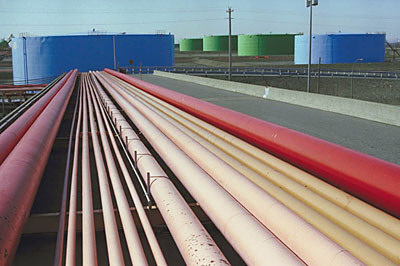 Taking into consideration global needs for new sources of energy to meet the growing industrial and household demands in the midst of rising energy costs and diminishing fossil fuels, it is imperative that PECC economies invest more in developing and optimizing new types of energy. It is one of top priorities for PECC economies to explore the most efficient ways of ensuring smooth transition from fossil fuels to renewable and sustainable energy. Lessons can be learnt by sharing how PECC economies are transitioning from being high energy consumers to becoming more eco-friendly and energy-efficient.
Taking into consideration global needs for new sources of energy to meet the growing industrial and household demands in the midst of rising energy costs and diminishing fossil fuels, it is imperative that PECC economies invest more in developing and optimizing new types of energy. It is one of top priorities for PECC economies to explore the most efficient ways of ensuring smooth transition from fossil fuels to renewable and sustainable energy. Lessons can be learnt by sharing how PECC economies are transitioning from being high energy consumers to becoming more eco-friendly and energy-efficient.
The project aims to design the framework for new economic models that will make way for smooth energy transition; it will bring together the energy-exporting and importing economies, energy producers or distributors as well as energy-related policymakers. It will put into perspective new initiatives and strategies designed to facilitate energy transition that will be critical to achieving sustainable living environment.
Several PECC economies are more advanced than others in rolling out forward-looking energy transition policies, in providing funding and implementing environmental regulations conducive to such transition. Based on extensive discussions and exchange of views gathered at the seminar, policy recommendations for facilitating energy transition using renewable and sustainable energy will be produced.
This project was implemented in a series of three seminars, led by FPTPEC in partnership with other PECC committees:
Seminar 1: Victoria, Canada, November 2013
Seminar 2: Santiago, Chile | June 24-25, 2014
Seminar 3. Nouméa, New-Caledonia | November 26-28, 2014 (download presentations)
Download program agenda (PDF, 170kb)
Session 1. Policies for renewable energies in the Pacific islands and coastal areas
Session 2. Economic models and financing policies for energy transition in the Pacific and coastal areas
Session 3. Technological challenges: Energy storage and efficiency, integration to existing networks
Session 4: Towards greater energy efficiency in coastal areas and Pacific islands

 Taking into consideration global needs for new sources of energy to meet the growing industrial and household demands in the midst of rising energy costs and diminishing fossil fuels, it is imperative that PECC economies invest more in developing and optimizing new types of energy. It is one of top priorities for PECC economies to explore the most efficient ways of ensuring smooth transition from fossil fuels to renewable and sustainable energy. Lessons can be learnt by sharing how PECC economies are transitioning from being high energy consumers to becoming more eco-friendly and energy-efficient.
Taking into consideration global needs for new sources of energy to meet the growing industrial and household demands in the midst of rising energy costs and diminishing fossil fuels, it is imperative that PECC economies invest more in developing and optimizing new types of energy. It is one of top priorities for PECC economies to explore the most efficient ways of ensuring smooth transition from fossil fuels to renewable and sustainable energy. Lessons can be learnt by sharing how PECC economies are transitioning from being high energy consumers to becoming more eco-friendly and energy-efficient.